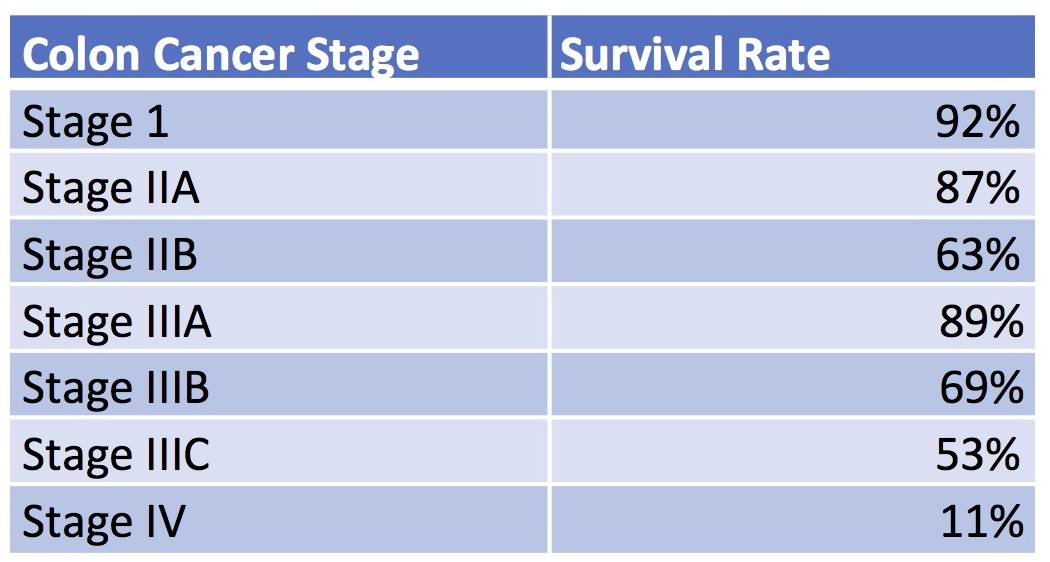
Colon Cancer Survival: How Exercise Improves Outcomes
Colon cancer survival is increasingly becoming a focal point of ongoing medical research, with recent studies revealing that regular physical activity can significantly enhance the longevity of survivors. A collaborative study from the Dana-Farber Cancer Institute demonstrates that even post-treatment exercise can bridge the survival gap between colon cancer patients and the general population. This is particularly relevant for individuals diagnosed with stage 3 colon cancer, who typically face dire survival rates compared to their peers. Individuals engaging in consistent exercise after treatment not only experience better overall health outcomes but also report lower long-term effects associated with cancer. As we delve into the promising relationship between exercise for cancer patients and improved survival rates, it becomes crucial to understand the broader implications this has for recovery and quality of life.
The journey of battling colon malignancies is often fraught with challenges, and the terms surrounding colon cancer survival encompass a wide range of experiences and strategies for recovery. Engaging in physical activity post-cancer treatment not only aids in improving overall health but also plays a vital role in enhancing life expectancy for those overcoming colorectal tumors. Research indicates that survivors, particularly those facing advanced stages like stage three, see profound benefits from integrating regular exercise into their regimen. Moreover, the concept of adapting to life after cancer treatment includes understanding how maintaining an active lifestyle can influence survival probabilities and reduce the likelihood of recurrence. This multifaceted approach to recovery is essential to appreciate the critical role that sustained physical exertion plays in defining the colon cancer survivor’s journey.
The Power of Exercise for Cancer Survivors
Regular physical activity is an essential component of post-treatment care for cancer survivors, particularly those overcoming stage 3 colon cancer. Research has consistently shown that engaging in exercise can significantly improve quality of life, enhance physical function, and reduce anxiety and depression levels among survivors. Incorporating an exercise routine not only promotes physical health but also aids in the emotional and psychological healing processes crucial for recovery.
In a robust study conducted by the Dana-Farber Cancer Institute, findings suggest that patients who maintain higher levels of activity after treatment experience not only improved short-term health outcomes but also long-term benefits that contribute to longevity. This indicates that exercise plays a pivotal role in bridging the gap in survival outcomes between cancer patients and the general population, reinforcing the importance of a structured exercise plan as part of a comprehensive treatment strategy.
Colon Cancer Survival Rates and Physical Activity
It is paramount to recognize the correlation between colon cancer survival rates and physical activity levels. Data suggest that patients who are active post-treatment, engaging in at least 18 MET-hours of exercise weekly, demonstrate survival rates that closely align with those of the general population. This starkly contrasts with the 50.5 percent lower survival rates observed in those who remain sedentary, underscoring that exercise is not merely an adjunct to traditional treatment but a critical element in the fight against cancer.
Additionally, the structured physical activity appears to mitigate the survival disparities notably observed in patients whose cancer recurs. When analyzing data from clinical trials involving stage 3 colon cancer patients, those who were physically active post-treatment showed proficiency in their recovery trajectory, experiencing better overall survival rates compared to their inactive counterparts. Such findings affirm the necessity for oncologists and healthcare providers to advocate for personalized exercise regimens tailored to enhance post-treatment survival among colon cancer patients.
Frequently Asked Questions
What impact does exercise have on colon cancer survival rates?
Exercise significantly enhances colon cancer survival rates. Research indicates that regular physical activity after treatment for colon cancer, particularly stage 3, can reduce mortality rates, bringing survivors’ outcomes closer to those of the general population. Engaging in at least 18 MET-hours of activity per week is linked to better survival rates.
How does post-treatment physical activity affect survivors of stage 3 colon cancer?
Post-treatment physical activity is crucial for survivors of stage 3 colon cancer. Studies show that those who maintain high activity levels experience substantially reduced survival disparities compared to the general population. Low activity levels correlate with a 50.5% lower survival rate among recurring cancer patients, emphasizing the importance of exercise.
Can regular exercise eliminate survival disparities for colon cancer patients?
Yes, regular exercise can eliminate survival disparities among colon cancer patients. Active individuals post-treatment have shown survival rates nearly matching those of similar age groups without cancer. High physical activity levels significantly improve long-term outcomes for colon cancer survivors.
What are the long-term effects of exercise on colon cancer survivors?
Long-term effects of exercise for colon cancer survivors include improved overall survival rates and reduced risk of recurrence. Engaging in consistent physical activity positively influences recovery and enhances life expectancy, making it an essential component of post-cancer care.
What is the recommended physical activity level for enhancing colon cancer survival?
For enhancing colon cancer survival, it is recommended to engage in at least 18 MET-hours of physical activity per week. This level of exercise is associated with improved survival outcomes, especially among stage 3 colon cancer survivors.
Is some exercise better than none for colon cancer survivors?
Absolutely, some exercise is better than none for colon cancer survivors. Even short durations of physical activity, such as 10-20 minutes, can improve health outcomes and contribute to better survival rates post-treatment.
How much does low physical activity affect long-term survival in colon cancer patients?
Low physical activity significantly impacts long-term survival in colon cancer patients. Those with low activity levels show a decrease of up to 50.5% in survival rates post-recurrence, highlighting the critical need for exercise among survivors.
Do all stage 3 colon cancer survivors benefit from exercise, regardless of age?
Yes, all stage 3 colon cancer survivors benefit from exercise, regardless of age. The positive effects of physical activity on survival rates have been observed across different age groups, making it an important aspect of recovery for all survivors.
| Key Point | Details |
|---|---|
| Impact of Exercise | Regular physical activity after stage 3 colon cancer treatment improves survival rates. |
| Research Background | Study from Dana-Farber Cancer Institute analyzed data from two clinical trials on stage 3 colon cancer patients. |
| Survival Disparities | Patients with low activity levels face 50.5% lower overall survival rates than the general population. |
| High Activity Levels | Patients with 18 MET-hours of activity per week have similar rates to the general population. |
| Importance of Exercise | Even minimal exercise (10-20 minutes) can lead to better outcomes. |
| No Recurrence | Patients active after treatment show 2.9% higher overall survival than their peers. |
| Cancer Recurrence | Active patients with recurrence have 33.2% lower overall survival rates than the general population. |
| Conclusions from Study | Exercise positively influences long-term survival, benefiting patients with or without recurrence. |
Summary
Colon cancer survival can be significantly improved through regular physical activity. Exercise plays a crucial role in narrowing the survival gap between colon cancer patients and the general population, especially after treatment. Not only does physical activity enhance overall survival rates, but it also benefits those who experience cancer recurrence. This research emphasizes that even small amounts of exercise can yield positive outcomes for survivors, making it an essential aspect of post-treatment care for colon cancer patients.


